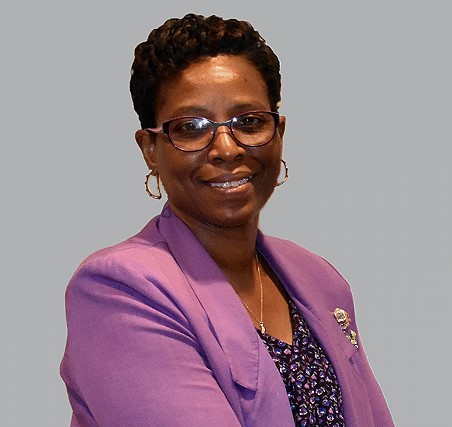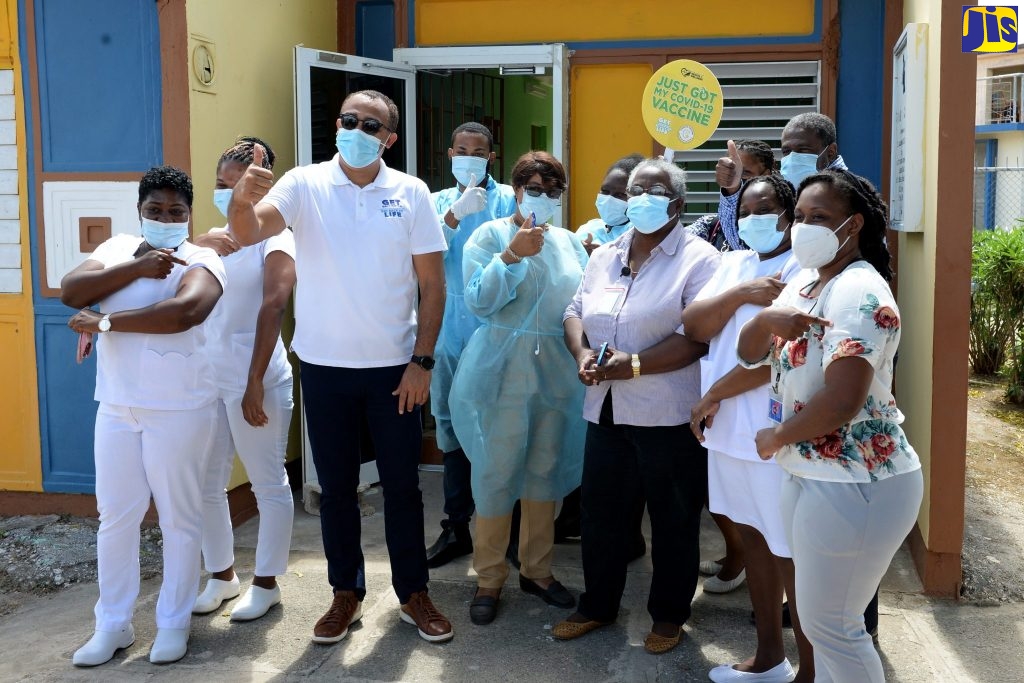Health Ministry Assures of Safety and Efficacy of Vaccines
By: , March 15, 2021The Full Story
Director of Family Health Services in the Ministry of Health and Wellness (MOHW), Dr. Melody Ennis, is assuring Jamaicans of the safety and efficacy of the vaccines being brought into the island by the Government in the fight against the coronavirus (COVID-19) pandemic.
Jamaica, on March 8, received a donation of 50,000 doses of the AstraZeneca vaccine from India, and started administering the vaccine to key frontline workers and other vulnerable groups on March 10.
The country is slated to receive another 14, 400 doses of vaccines through the COVAX facility on Monday, March 15, with other shipments to follow.

Dr. Ennis says that all the vaccines being procured by the Government are among the four that have been granted emergency use authorisation to date, by the World Health Organization (WHO). In addition to AstraZeneca, the others are the Pfizer, Moderna, and Johnson and Johnson vaccines.
The WHO’s Emergency Use Listing (EUL) assesses the quality, safety and efficacy of COVID-19 vaccines and is a prerequisite for COVAX facility vaccine supply.
It also allows countries to expedite their own regulatory approval to import and administer COVID-19 vaccines.
Dr. Ennis tells JIS News that in addition to rigorous testing through the Pan American Health Organization (PAHO)/WHO system, the vaccines have also been certified by stringent regulatory authorities such as the United States Food and Drug Administration (FDA).
She assures that the Government would not have gone forward with procuring the vaccines, were they not approved by WHO.
“I want everybody to just be mindful that several tiers or layers must happen before vaccines are brought here so that we can guarantee that those vaccines are really safe and efficacious,” she says.
She notes that the process included legislative review and amendments “in order for us to accept the vaccines,” and also signing on to COVAX.
“COVAX is actually an entity that was created in April of last year and it was envisioned that this entity would ensure that equity would be there for the distribution of not only vaccines, but also therapeutics and diagnostics,” Dr. Ennis tells JIS News.
The facility is a global risk-sharing mechanism for pooled procurement and equitable distribution of vaccines.
“It also has the mandate of ensuring that pricing is reasonable so that the poorest countries, for example, would be able to access these vaccines or medications,” Dr. Ennis adds.
She notes that the global effort involves WHO and PAHO, the Vaccine Alliance (Gavi) and the Coalition for Epidemic Preparedness Innovation (CEPI).
Gavi is a public-private global health partnership with the goal of increasing access to immunisation in poor countries, while CEPI as launched in 2017 to develop vaccines to stop future epidemics.
“Jamaica, along with 189 other countries, joined the COVAX facility and in order for us to have equity across the world, what they said was that we should vaccinate the most vulnerable at-risk groups,” Dr. Ennis explains.

This, she notes, amounts to about 20 per cent of all populations around the globe. “So if all countries were granted 20 per cent of vaccines in the first tranche of delivery, then they would be able to vaccinate their most vulnerable,” she points out.
Dr. Ennis notes, however, that the persons most at risk in Jamaica, when calculated, amounted to a little less than 20 per cent of the population and so Jamaica signed on to accepting 16 per cent to inoculate the vulnerable population.
“If we inoculate everyone in our target group of 16 per cent, we’ll still have a small amount left over so we defined our group and that was aligned with international recommendations and the science,” she says.
“The population, as defined, includes the health care workers, because they are frontline and actually exposed when treating persons with COVID 19; and the elderly, persons over 60 years old, because most of the deaths are among this age group, especially persons with comorbid conditions,” the Family Health Services Director says.
“Then we have our non-health frontline workers, who must be included because they are on the ground and are in contact or have the likelihood of coming into contact with persons, who are infected,” she notes further.
These include members of the Jamaica Defence Force (JDF), Jamaica Constabulary Force (JCF), Passport, Immigration and Citizenship Agency (PICA) and Jamaica Customs Agency.
Nursing homes, infirmaries and penal institutions are also included, Dr. Ennis says.
The Family Health Director tells JIS News that the MOHW is “following the signs that in order for herd immunity to be achieved we need about 70 per cent of the population vaccinated”.
“So our Government took the approach to engage in bilateral conversations and those have started with India, China the United Kingdom, Mexico and the Africa Medical Supplies platform in order to access more vaccines so that we can get to our 70 per cent immunity earlier”.


